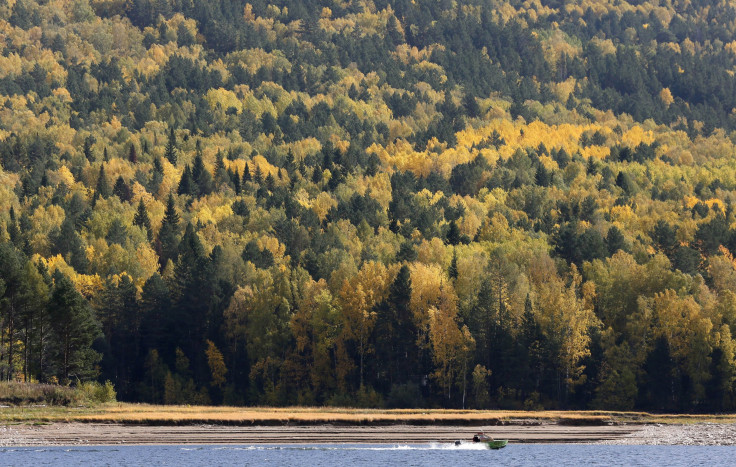Climate Change Is Pushing Earth's Boreal Forests Toward A 'Tipping Point'

Boreal forests, found in the sub-arctic regions of North America, Europe and Asia, make up nearly 30 percent of Earth’s total forest area. Experts now believe that these ecosystems are fast approaching a “tipping point” due to a rise in global temperatures caused by climate change.
“Although most of the boreal forests have retained the resilience to cope with current disturbances, projected environmental changes of unprecedented speed and amplitude pose a substantial threat to their health,” scientists from Austria’s International Institute for Applied Systems Analysis (IIASA), Natural Resources Canada, and the University of Helsinki in Finland, wrote, in an article published over the weekend in the journal Science.
Boreal forests, more commonly known by their Russian name “taigas,” cover the northernmost regions of Canada, Russia, Alaska and Scandinavia -- encompassing an area of nearly 13 million square miles. The flora and fauna in the region are habituated to long, severe winters, which can last up to six months with mean temperatures below freezing, and short (50 to 100 frost-free days) summers.
However, as the planet continues to heat up, the changes to these ecosystems can be “very dramatic and very fast,” co-author Dmitry Schepaschenko from IIASA told the Canadian Press.
According to the researchers, climate change-induced warming might raise the temperatures of some of these ecosystems by up to 11 degrees Celsius (19.8 degrees Fahrenheit) by the end of the century, which might bring greater precipitation, but would not be enough to compensate for the dryness caused by hotter weather.
Additionally, thawing permafrost would release carbon in the form of greenhouse gases such as carbon dioxide and methane -- a “carbon bomb” of sorts -- that would create a feedback loop of global warming.
“Overall, these factors mean that huge areas of boreal forest will be at high risk of impoverishment or change to grassland or shrubland,” the researchers wrote, in the article, calling for greater focus on the forests’ resilience, adaptive capacity, and productivity.
“Management options to reduce these threats are available and could be implemented, but economic incentives and a greater focus on the boreal biome in international fora are needed to support further adaptation and mitigation actions,” they added, in the paper.
© Copyright IBTimes 2024. All rights reserved.






















